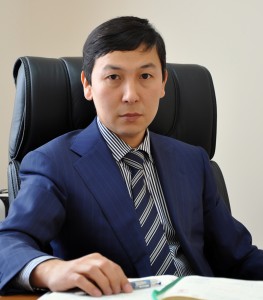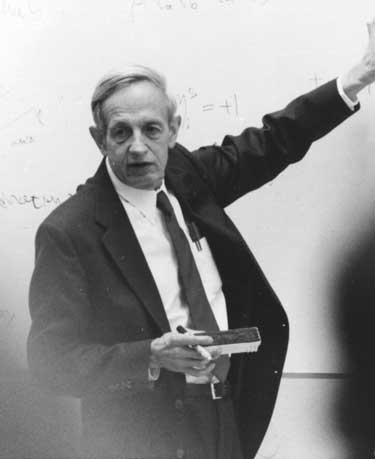Nobel winners to deliver 28 lectures to Kazakhstan students
Four years ago President Nursultan Nazarbayev was wrestling with a global economic crisis that had hit Kazakhstan hard.
One way to help solve the domestic problem, he thought, would be to tap some of the world’s top economic minds.
“They would have the knowledge of the economy and they would know how to cure the economy – both Kazakhstan’s and the world’s,” was how the president was thinking, according to Murat Karimsakov, who heads the Astana Economic Forum’s organizing team.
President Nazarbayev suggested that the Forum, which was brand-new, invite Nobel Prize winners. Not only could the laureates help Kazakhstan, he reasoned, but they could also increase the Forum’s attendance by attracting those wanting the latest in economic thinking.
Forum organizers adopted his suggestion – and in the event’s second year, in 2009, a Nobel tradition was born.
The second Forum drew two Nobel winners. The third in 2010 attracted four, last year’s seven, and the Forum that opened Tuesday boasts 12 laureates.
Murat’s story of how the Nobel Prize tradition was born is fascinating. But even more intriguing is the newest wrinkle in the tradition.
The 12 laureates at the Fifth Astana Economic Forum from May 22 to 24 will be delivering a combined 28 lectures or speeches at Kazakhstan universities and high schools, Murat said.
In other words, Kazakhstan is not only offering the laureates’ wisdom to the local and international government officials, business executives and academics attending the Forum, but also to its young people.
It’s a safe bet that there’s no Nobel-laureate outreach program like Kazakhstan’s anywhere in the world.
But there should be. What better way to teach youngsters – and inspire them to reach for the stars – than to have Nobel Prize winners doing the teaching.
The Eurasian Economic Club of Scientists, the Astana Economic Forum’s main organizing group, experimented with the laureate-teaching idea in 2011. Murat heads the conference’s organizing effort by virtue of his being the chair of the club of scientists’ executive body.
“The laureates gave six lectures last year – at Eurasian National University, Kazakh National University, Nazarbayev University and the Polytehnic University in Almaty,” said Murat. Students at 13 other universities watched the lectures by video conference.
Kazakh National University is in Almaty, Kazakhstan’s commercial capital and largest city, while Eurasian National University and Nazarbayev University are in the capital, Astana.
“The feedback on the lectures from students, professors and government officials was so good that this year we decided to greatly expand the effort,” Murat said.
Most of the 12 Nobel winners at this year’s Forum will also speak at universities, he said. Because Forum days are intense, the laureates will visit the universities before or after their Forum appearances.

“For example, John Nash, came before the Forum started,” Murat said.
The renowned Princeton University mathematician and economist was scheduled to speak at Sakaz University in the southern city of Shymkent, at Turan University in Almaty and at Eurasian National University.
Nash was even scheduled to deliver the commencement address at Public High School Number 17 in Astana.
Murat noted that the number of laureates attending the Forum has increased in direct proportion with the annual event’s rise in attendance.
The first Forum in 2008 drew 400 people. This year’s is expected to attract 6,500.
Murat said the Forum does not invite Nobel winners willy-nilly. “We have targeted each laureate for their ability to meet a Kazakhstan need,” he said.
Because of the 2008 and 2009 economic crisis, the first invitees were economics winners.
Economists still dominate the laureates list, partly because the Nazarbayev administration believes that the global economic recovery remains fragile. But as the number of Forum sessions has increased – and the sessions have broadened beyond economics – organizers have invited laureates in other fields.
This year’s Forum will have sessions on the health-care and pharmaceutical industries, for example.
“We invited John Roberts from Britain because the medical industry is one of the leading industries in the world,” Murat said.
Sir Richard John Roberts, who teaches at the University of Sheffield, shared a Nobel Prize with Phillip Allen Sharp in 1993 for genetics research, including gene-splicing.
The Forum invited physics laureate Gell-Mann Murray because its sessions on sustainable energy have mushroomed to the point that they’ve become a “forum within a Forum,” Murat said. Murray, who holds professorships at a number of U.S. universities simultaneously, won a Nobel Prize in 1968 for his research on subatomic particles and the discovery of the quark.
Murat said he’s been lucky enough to have had some memorable personal interactions with the laureates.
Robert Aumann, an economics winner from Israel, told Murat that he’s invited to forums around the world, but he’s developed a special affinity for the Astana Economic Forum. “He thinks it’s a good place for discussion,” Murat said.
Murat said he respects Aumann for his application of game theory on the prospect of nuclear war.
“After he came up with his model, NATO and the Warsaw Pact began cutting back on nuclear weapons” in the 1960s and 1970s, Murat said.
Another laureate who enjoys coming to Astana is Canadian economist Robert Mundell, partly because he agrees with two of President Nazarbayev’s key views on reforming the global economy.
One view is that the number of countries that set world economy policy ought to be greatly expanded beyond the G-8 and G-20. Mundell has said “it’s not democratic when 10 percent of the world population make decisions that determine the life of the other 90 percent,” Murat noted.
The other view that Mundell shares with Nazarbayev is that the world needs a global currency to replace the dollar. Countries whose trade has been tied to the dollar have suffered greatly when the dollar has faltered, Mundell has said.
Another reason that Murat’s Forum organizing team and Kazakh officials have warmed to Mundell is his proposal that a cash prize be awarded to the most outstanding young economist each year. That proposal will become a reality at this Forum.
Kazakhstan has been so happy with the Nobel tradition it has established that one thing is clear: It’s almost certain to continue – and to become an even larger force in the country’s development.
Read a snapshot of the Nobel Prize winners here.
(Feature photo of John Nash. Courtesy of Princeton University.)
(Hal Foster appears in the Baltimore Post-Examiner under a partnership with Tengrinews of Kazakhstan. )

Hal Foster is a longtime journalist and journalism professor who has worked in the United States, Japan, Ukraine and Kazakhstan. His news career has included writing and editing at the Los Angeles Times and nine years as a journalist in Japan. He is an associate professor of Communication at the new Nazarbayev University in Astana, Kazakhstan. Catch one of his other blogs at en.tengrinews.kz.

